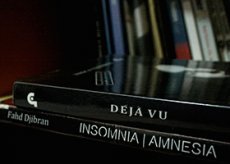New publications
Experts say: deja vu is normal
Last reviewed: 02.07.2025

All iLive content is medically reviewed or fact checked to ensure as much factual accuracy as possible.
We have strict sourcing guidelines and only link to reputable media sites, academic research institutions and, whenever possible, medically peer reviewed studies. Note that the numbers in parentheses ([1], [2], etc.) are clickable links to these studies.
If you feel that any of our content is inaccurate, out-of-date, or otherwise questionable, please select it and press Ctrl + Enter.

Many people are familiar with the state of déjà vu – the feeling that a similar situation has already taken place. Scientists became interested in whether there was something mystical and mysterious in this phenomenon. As a result, cognitive psychologist Ann Cleary developed a technique that can awaken “déjà vu” in a person.
Despite the fact that déjà vu is a common phenomenon, until now no one could answer the reasons for it and how exactly it develops. Lovers of mysticism and secrets are massively “promoting” their theory: supposedly, déjà vu is a kind of memory from past lives, signs of parallel worlds, or simply matrix violations. Scientists did not pay attention to such assumptions, but focused on how the brain can process information removed from memory.
Most likely, déjà vu is the result of a slowdown in communication between individual areas of the brain. This leads to the current situation being “recorded” in the brain twice in an accelerated sequence. It may well be that a person perceives an event faster than usual, bypassing short-term memory: thus, the picture is sent straight to long-term memory. An additional factor may be that the remembered information is checked by brain structures twice to exclude erroneous reproduction.
Dr. Ann Cleary, representing the University of Colorado, has been studying this issue for several years. He is of the opinion that déjà vu becomes a common cognitive error. For example, a person experiences a situation similar to something that has already happened before. However, he is unable to consciously reproduce it in memory. The brain perceives this episode as something familiar.
In a new project, Cleary and his colleagues tried to provoke a state of déjà vu in volunteers. The scientists used the simulator program The Sims, in which they created a series of virtual scenes that were spatially similar to one another. However, there was still a difference – in the general design. The participants were given virtual reality glasses, after which they were “placed” one by one to the listed similar scenes that were not thematically related. As a result, the volunteers reported déjà vu upon entering the first similar scene (although in fact they had not visited it before).
“A person may not consciously remember a familiar situation, but the brain immediately detects similarities,” explains Cleary. “The data obtained causes an uneasy feeling in the person: it seems like he has been here before, but is not able to determine how and under what circumstances it happened.”
In the next test, the experts tested the ability to "predict", which is directly related to déjà vu. Volunteers were asked to go through virtual labyrinths, which again had spatial similarity. As it turned out, every second participant reported some kind of premonition, but such abilities reflected ordinary guessing.
Scientists have concluded that deja vu makes us feel like we are predicting the future, but in reality this is not the case.
All stages of the study are described on the pages of Psychological Science (http://journals.sagepub.com/doi/full/10.1177/0956797617743018)
 [ 1 ]
[ 1 ]
